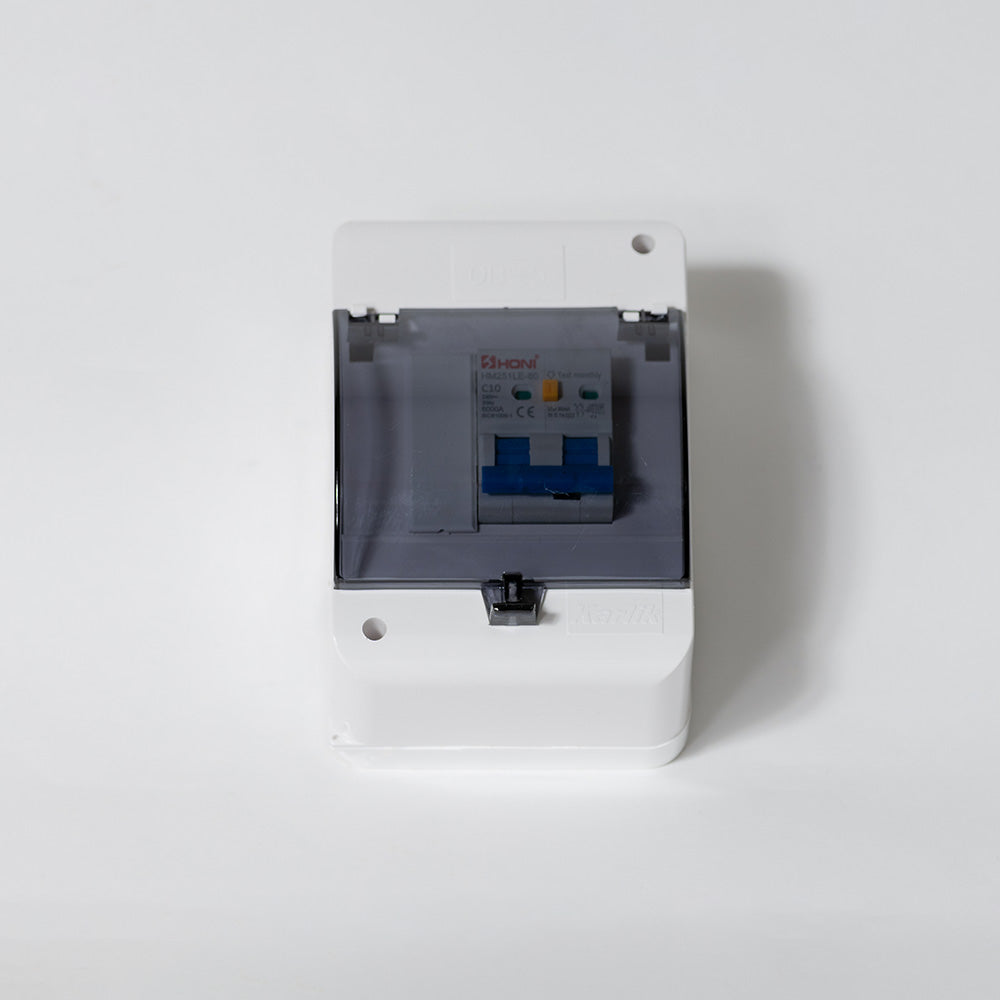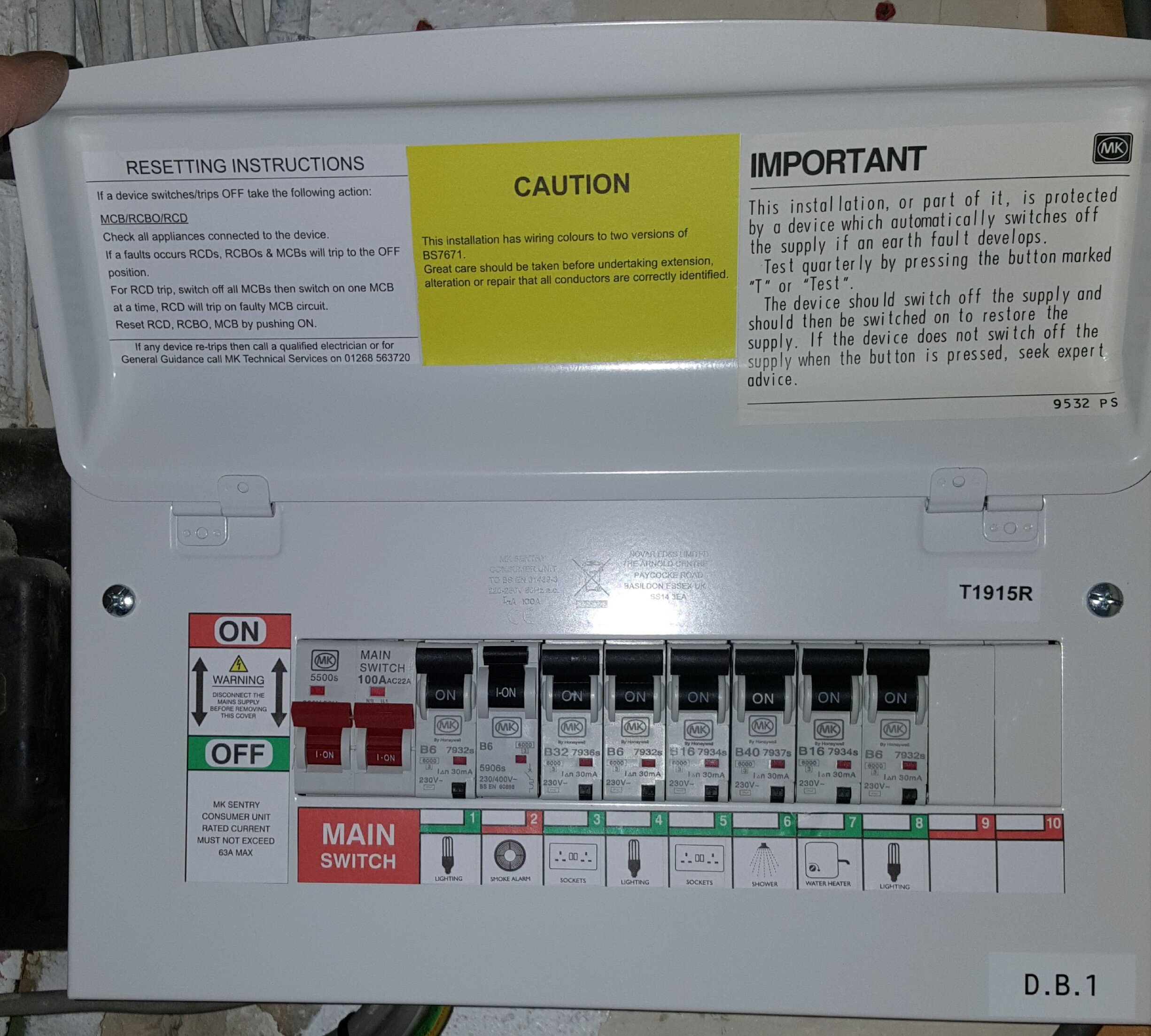The Value of Setting Up Reliable RCBO CONSUMER UNITS in Your Property
The Value of Setting Up Reliable RCBO CONSUMER UNITS in Your Property
Blog Article
The Function of Customer Systems in Effective Power Administration Equipment
Customer devices are indispensable to effective energy administration systems, offering as the primary distribution factors for electric power within structures. The development of smart innovations has better boosted their capability, allowing for real-time information tracking and nuanced energy consumption analysis.
Comprehending Consumer Units

Recognizing the role of customer devices begins with recognizing their vital feature in safeguarding electric systems. By isolating faults within particular circuits, customer units stop extensive blackouts and possible fire hazards. This isolation is accomplished through using circuit breakers that journey or merges that impact when a mistake is identified, thereby removing the electric circulation to the affected circuit.
In addition, customer systems help with the well organized distribution of power, boosting the performance of energy usage. They permit the organized management of electric loads, which can be particularly essential in commercial and commercial setups where need can fluctuate dramatically. Effectively conserved consumer devices add to the durability of electrical systems and assist in reducing downtime created by electric failures, inevitably supporting the smooth procedure of energy-dependent centers.
Smart Technologies Combination

A vital benefit of wise consumer units is their ability to utilize progressed algorithms and artificial intelligence for predictive analytics. This allows for preemptive changes based on usage patterns, weather prediction, and other variables, dramatically increasing overall performance. Clever consumer devices assist in demand action programs, where power usage can be dynamically changed during optimal durations to maintain the grid and reduce costs.
The combination of eco-friendly power sources, such as solar and wind, is likewise structured via smart customer units. By intelligently taking care of the intermittency of these sources, these units make certain a well balanced and reliable power supply. In addition, clever consumer devices enhance individual engagement by offering detailed understandings and push-button control capabilities via mobile applications, fostering a more proactive technique to energy conservation and sustainability.
Tracking Energy Usage
Structure on the abilities of clever technologies assimilation, checking power intake ends up being an important emphasis within power management systems. Effective surveillance acts as the foundation for determining energy inadequacies and carrying out restorative procedures. By leveraging innovative metering facilities (AMI), real-time data on energy use can be accumulated at granular levels, supplying useful insights right into intake patterns and peak need periods. This data-centric strategy makes it possible for both customers and power managers to make educated decisions focused on decreasing waste and improving overall performance.
Smart meters and Net of Things (IoT) devices play a crucial role in this surveillance process. These tools can track power use in real-time, transmitting information to central systems for evaluation.
The assimilation of these modern technologies not just encourages customers with thorough info regarding their energy usage but additionally supports energy service providers in managing load circulation extra successfully. Ultimately, continuous and specific surveillance is crucial for accomplishing energy effectiveness, price financial savings, and sustainability goals within power monitoring systems.
Optimizing Appliance Use

One efficient method entails determining height and off-peak hours to change energy-intensive activities, such as washing or dishwashing, to times when power need is reduced. This not just minimizes strain on the grid yet additionally takes advantage of reduced energy tolls. Additionally, integrating artificial intelligence formulas enables predictive upkeep, making certain appliances operate at optimal performance and prolonging their life-span.
Energy administration systems can likewise include user-specific choices and habits to tailor appliance use routines. For instance, smart lighting systems can adjust brightness based on tenancy and natural light availability, while HVAC systems can preserve convenience degrees without excessive power usage.
Encouraging Sustainability
Promoting sustainability within energy administration systems involves not only enhancing efficiency however additionally promoting ecologically responsible practices. Customer systems are important to this procedure, as they provide real-time information and control systems that enable individuals to keep an eye on and decrease their energy intake. By leveraging advanced modern technologies, customer anchor systems can recognize energy-saving chances and promote the combination of sustainable power sources like solar and use this link wind power.
One essential aspect of advertising sustainability is informing consumers on the benefits of liable energy use. Through in-depth insights offered by consumer systems, customers can make educated choices that lessen their carbon footprint. As an example, these units can recommend optimal times for operating high-energy devices based upon grid demand and renewable resource schedule, thereby decreasing reliance on nonrenewable fuel sources.
In addition, customer units sustain the fostering of clever grid technologies, which boost the total efficiency and integrity of power circulation. By allowing two-way interaction in between consumers and utility suppliers, these systems can dynamically adapt to energy demands, minimizing waste and promoting making use of sustainable power techniques.
Final Thought
Customer units, as integral components of energy monitoring systems, substantially improve electrical safety and efficiency within buildings through circuit security and clever modern technology integration. Real-time data monitoring and evaluation promoted by these systems enhance energy intake and device use. Furthermore, the incorporation of renewable power sources advertises lasting methods, adding to lowered total energy usage and lower carbon impacts. Customer systems play an important role in advancing both power effectiveness and ecological sustainability.
Advances in clever innovations have actually changed the capabilities of power management systems, specifically via the combination of wise customer systems.Building on the abilities of wise innovations combination, checking power intake becomes an essential focus within energy monitoring systems.Efficient home appliance use optimization is a crucial component of Find Out More power management systems, intending to enhance efficiency and lower unnecessary power intake.Customer systems, as integral components of energy monitoring systems, considerably boost electrical security and efficiency within buildings through circuit protection and clever modern technology assimilation. Furthermore, the consolidation of renewable energy sources advertises sustainable practices, adding to decreased total energy usage and lower carbon impacts.
Report this page